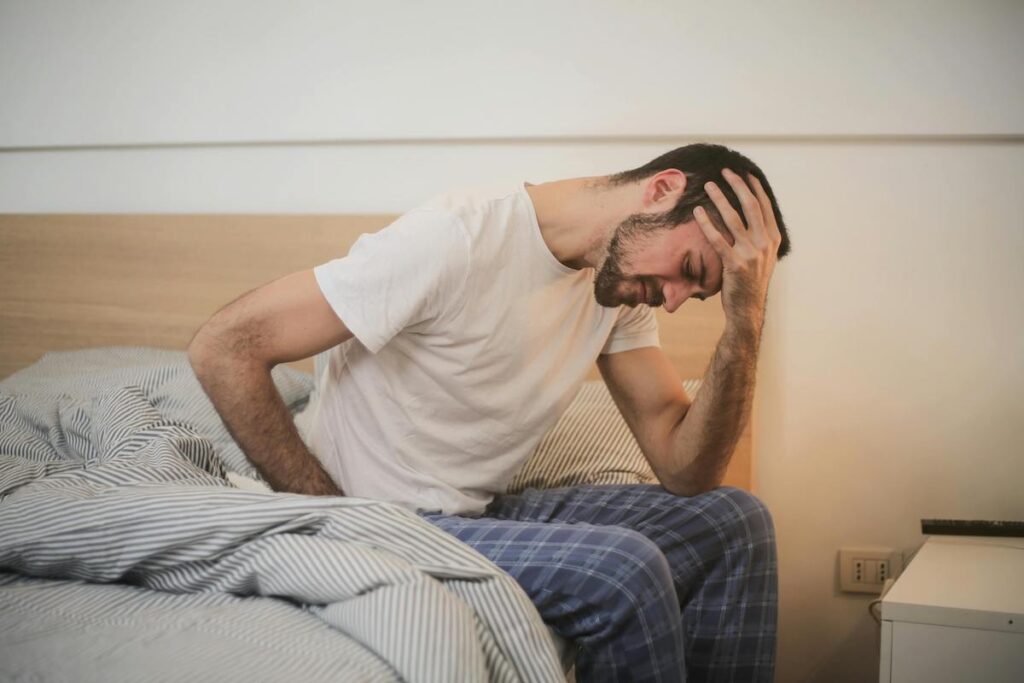Understanding Withdrawal Symptoms in the First 48 Hours
The first 48 hours after stopping drug or alcohol use can be one of the most physically and emotionally intense periods in early recovery. Whether someone is detoxing from opioids, alcohol, benzodiazepines, or stimulants, withdrawal symptoms can emerge quickly and may range from uncomfortable to life-threatening. This early period is a critical window where support and medical supervision can make all the difference.
Why the First Two Days Matter So Much
Withdrawal is your body’s way of reacting to the absence of a substance it has become dependent on. Over time, your brain and body adapt to repeated drug or alcohol use. When that substance is suddenly removed, systems that had adjusted to the presence of chemicals now scramble to rebalance themselves. That process can bring on a flood of symptoms both mental and physical.
For many individuals, these first two days can set the tone for the rest of detox. When symptoms are too overwhelming, people may return to using just to make them stop. On the other hand, with the right support, individuals can begin a safer path forward and gain confidence that they can make it through the hardest part.
The Onset of Withdrawal Symptoms by Substance
Different substances cause different withdrawal experiences. While the timing may vary depending on frequency of use, dosage, and individual health, most people feel the first signs within hours.
Opioids
Opioid withdrawal often begins 8 to 12 hours after last use for short-acting opioids (like heroin or oxycodone), and within 24 to 36 hours for longer-acting opioids (like methadone or extended-release painkillers). During the first 48 hours, people may experience:
- Intense muscle aches
- Nausea or vomiting
- Chills and goosebumps
- Insomnia and agitation
- Sweating and yawning
- Dilated pupils and tearing eyes
While rarely fatal, opioid withdrawal can be agonizing. Professional detox offers medications that reduce symptoms and lower relapse risk during this window.
Alcohol
For those with alcohol dependence, symptoms can begin as soon as 6 hours after the last drink. Mild anxiety and tremors may give way to more serious problems like seizures or hallucinations within the first 48 hours. Early warning signs include:
- Shaking or tremors
- Nausea and vomiting
- Irritability or mood swings
- Trouble sleeping
- Headache
- Increased heart rate
In some cases, severe alcohol withdrawal can lead to delirium tremens (DTs), which can be life-threatening. Monitoring by medical professionals is essential, especially if there’s a history of heavy use.
Benzodiazepines
With benzodiazepines like Xanax, Ativan, or Valium, withdrawal often begins 12 to 24 hours after last use. For longer-acting benzodiazepines, symptoms may appear later, but in the first 48 hours they can include:
- Anxiety or panic
- Trouble sleeping
- Restlessness
- Muscle stiffness
- Sensitivity to light or sound
- Feelings of unreality or depersonalization
Benzodiazepine withdrawal can also lead to seizures, particularly for those who’ve used the drug heavily or for a long time. Because of this, detox should be done under professional care.
Stimulants
Withdrawal from drugs like cocaine or methamphetamine typically starts within a few hours of last use. Though not usually physically dangerous, stimulant withdrawal can cause severe psychological symptoms. These may include:
- Intense fatigue
- Depression or hopelessness
- Vivid dreams or nightmares
- Increased appetite
- Agitation or paranoia
Emotional support and rest are vital during this early phase. Cravings may also be powerful, especially if drug use was tied to intense lifestyle patterns.
Common Emotional Experiences During Early Withdrawal
Aside from physical discomfort, emotional distress is often a major part of withdrawal in the first two days. Feelings of fear, sadness, regret, or confusion are normal. In fact, many people describe feeling like they are “going crazy,” especially if hallucinations, mood swings, or sleep loss come into play.
It’s important to remember that these feelings are temporary. The brain is in a state of adjustment. Getting support during this time not only eases distress, but also helps people feel less alone in what can be a frightening experience.
What Safe Withdrawal Support Looks Like
Medical detox offers more than just a safe environment. It provides structure, clinical monitoring, and medications that can significantly reduce withdrawal symptoms. Here’s what to expect from a professional detox program during those first 48 hours:
Monitoring and Assessment
Medical teams check vital signs frequently and track symptoms as they emerge. This helps staff respond quickly to signs of complications.
Medication Support
Certain medications can ease pain, control nausea, and reduce anxiety. For some substances, like alcohol or opioids, medications can also help stabilize the nervous system and lower the risk of seizures or relapse.
Emotional Support
Behavioral health professionals provide reassurance, counseling, and help clients begin to process what they’re going through. This early support can build the foundation for longer-term recovery.
Why At-Home Detox Can Be Dangerous
Detoxing at home may seem appealing to some people who feel ashamed or want to keep their recovery private. But doing so can be risky, particularly in the first 48 hours.
Without medical oversight, symptoms can spiral out of control quickly. Seizures, dehydration, or panic attacks may require emergency care. At home, these dangers may go unnoticed until it’s too late.
Even if someone pushes through withdrawal physically, the mental strain can be overwhelming. This is when people often relapse. Getting through detox safely the first time gives individuals a better chance at long-term recovery.
Preparing for Withdrawal: What You Can Do Ahead of Time
If you or someone you love is planning to stop using drugs or alcohol, preparation matters. Taking a few proactive steps can make withdrawal safer and less frightening.
- Seek professional help. Call a detox facility or treatment center and talk through your options. Knowing you’ll be monitored gives peace of mind.
- Arrange support. Let a trusted friend or family member know what you’re planning. Having someone on standby can make all the difference.
- Set realistic expectations. Withdrawal won’t be easy. But knowing that symptoms will pass helps you stay focused and grounded.
- Avoid isolation. Being alone increases the risk of relapse or medical emergencies. Support is not a weakness—it’s protection.
What Comes After the First 48 Hours
Making it through withdrawal is a major step, but it’s only the beginning. Once symptoms start to subside, people are often left with intense cravings, mood swings, and a flood of unresolved emotions. That’s why professional treatment doesn’t stop after detox.
After the first two days, the focus shifts to stabilization and therapy. Inpatient or outpatient rehab can help individuals understand the root causes of addiction, build coping strategies, and prepare for long-term recovery.
For many people, the first 48 hours are the darkest part of addiction recovery. But once you move past them, hope begins to return.
When to Get Help
If you or a loved one is considering stopping drug or alcohol use, don’t wait for things to get worse. The first two days of withdrawal can be dangerous without support, but they’re also an opportunity to reset and begin a better life.
Professional help ensures you’re not facing these challenges alone. With the right medical care and emotional support, you can take your first steps toward recovery safely and with confidence.



